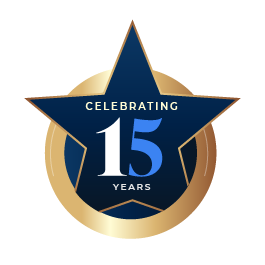Once a legal right to intellectual property, either by way of copyright, trademark, registered design or patent has been granted then the owner of that property has the right to take legal action against any person who violates their rights under intellectual property law. This is known as IP Infringement and falls into the same four categories of the main forms of IP:
- Patent Infringement is classed as when a person makes, uses, sells or imports an item which is covered by a patent.
- Design infringement occurs when a person uses, sells or imports something which is identical to an item which has a registered design.
- Copyright infringement occurs when a piece of work which is protected by a copyright is used by a person without the permission of the owner.
- Trade mark infringement occurs when a person uses a mark or logo which is similar to or identical to a registered trade mark.
Enforcing IP
Once IP has legally been granted to a person or company then their rights are covered by UK law and as such they have the right to make a complaint and bring a case against the person or persons making use of the IP. Those who have IP granted to them should make every available effort to ensure that their rights are well known. Therefore, many businesses use things such as a software licence, website terms and conditions or other legal notices which may be drawn up by technology solicitors, IP solicitors or corporate law firms.
However, in the event that notices relating to the intellectual property rights have been ignored and the IP rights have been violated then the owner should seek legal advice from their IP solicitors. Not only will contacting a solicitor to work on behalf of the person owning the IP rights ensure that their case is properly presented and argued but it may be that the offence being committed is covered by criminal law as well as civil law.
IP offences which are both civil and criminal matters might include counterfeiting and piracy and are often known as “IP Crime”. IP crime occurs when another person uses another persons’ IP without their permission and makes a profit from it. When the IP in question is a trade mark then the offence is that of counterfeiting in this case you will need to source a trademark or patent attorney, whilst a breach of copyright is classed as piracy.
Counterfeiting may include the reproduction of clothing, designer goods and cosmetics such as perfume or aftershave, whilst piracy tends to (but not always) relate to DVD’s, music, films and computer software.
Gaining Retribution
If a person or business feels or believes that their IP rights have been violated then should report the matter to the Intellectual Property Office who, whilst not being able to provide legal advice, can investigate the offence and enforce the policy as it stands.
In addition, it may be possible for the person in question to receive legal compensation for any losses they have suffered as a result of the IP infringement but this will depend on the specific nature of the individual case. The person in question should seek legal advice and representation from a local IP lawyer in order to have regular face to face meetings and updates on the infringement case.
